2016: The year the car industry's revolution moved into top gear
- Published
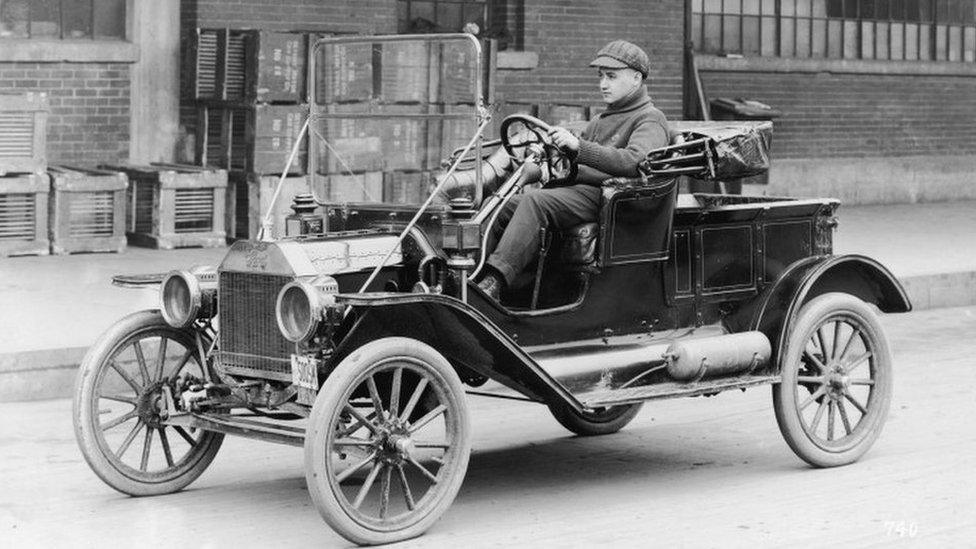
The industry's decades-old business model that relied on combustion engines and mass demand for private car ownership is coming to an end
It's been a year that should dispel doubts the car industry is going through a technological revolution.
The convergence of traditional motor manufacturing and new digital technologies has been shifting slowly through the gears for a couple of years.
But in 2016, things hit top speed. A string of deals, strategic announcements and investments has even left some experts wondering if a bubble is growing.
"Manufacturers finally really understood the need for change," says Martin Benecke, Frankfurt-based analyst at IHS Automotive.
"They see the competitive threat from Google and Apple. They know they cannot respond by doing everything themselves, so have to form alliances and partnerships," he says.
Barely a week has gone by without reports of a new taxi-hailing partnership, a connected-car development, or another advance in driverless technology.
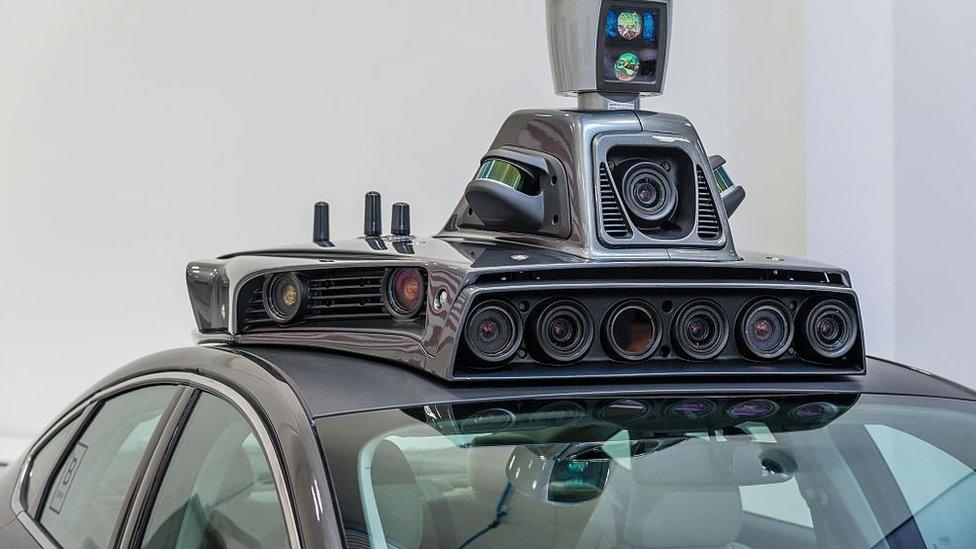
Ride-sharing firm Uber has been piloting self-driving cars
"Carmakers have essentially followed the same business model for 100 years," says Phil Harrold, automotive partner at PricewaterhouseCoopers. "Technology firms knew it was a market they could enter and disrupt.
"Old-fashioned OEMs [original equipment manufacturers] came to the realisation that if they are not to become irrelevant they have to embrace the technology and new services," he says.
When German giant VW announced in November a huge 30,000 job cuts programme, less attention was paid to the 9,000 jobs it vowed to create under its "Future Pact" strategy to develop electric and self-driving cars.
VW was engulfed in the diesel emissions scandal, but it gave the company the incentive, and shield, to begin a change in direction that might otherwise have taken years, says Benecke. As the saying goes - never let a good crisis go to waste.
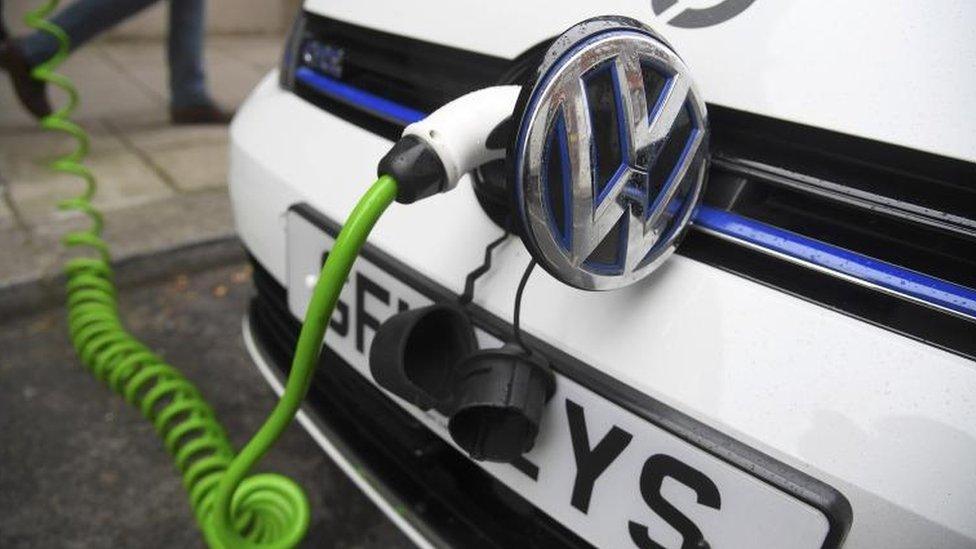
VW, Europe's largest carmaker, announced radical plans to invest in new-generation vehicles and transport services
In the future, Volkswagen will be making fewer engines and gearboxes, and more batteries, sensors and software.
Keeping mobile
There has also been a shift in consumer attitudes, although there remains particular unease about the introduction of driverless vehicles, according to surveys.
Even so, scepticism about the viability of new transport technologies is being replaced by a real understanding of their potential, says Martyn Briggs, senior consultant at Frost & Sullivan.
And there is now evidence of consumers deferring car buying because of the growth of taxi-hailing and car-sharing services, he says.
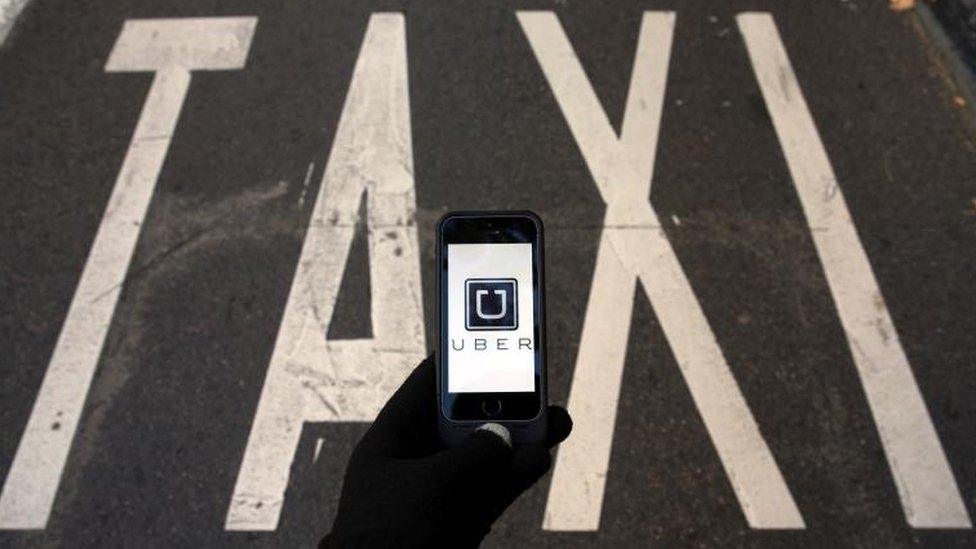
Analysts say the phenomenal growth of companies such as Uber is transforming attitudes to car ownership
Briggs recalls the Red Flag safety laws of the late 19th Century when people were required to walk ahead of a revolutionary new machine - the motor car.
There has been a lot of flag waving about future transport services. "But people now see it becoming reality," he says.
The millennial generation no longer regards car ownership as a necessity, while the ageing generation sees taxi-hailing and driverless technology as the way to keep them mobile, Briggs says.
Adapt or die
For years, carmakers and tech firms, with their different cultures and pace of development, eyed each other with mutual suspicion.
Now they see each other as potential partners, not adversaries.
The shift was evident at the start of the year. January's lacklustre North American Auto Show, in Detroit, had already been upstaged days earlier in Las Vegas, at the Consumer Electronics Show (CES).
Forbes magazine reported CES as "a high water mark in terms of the scale and significance of car technology unveiled", external.
Twelve months later and 2016 has ended with major developments from Silicon Valley titans Apple and Google-owner Alphabet.
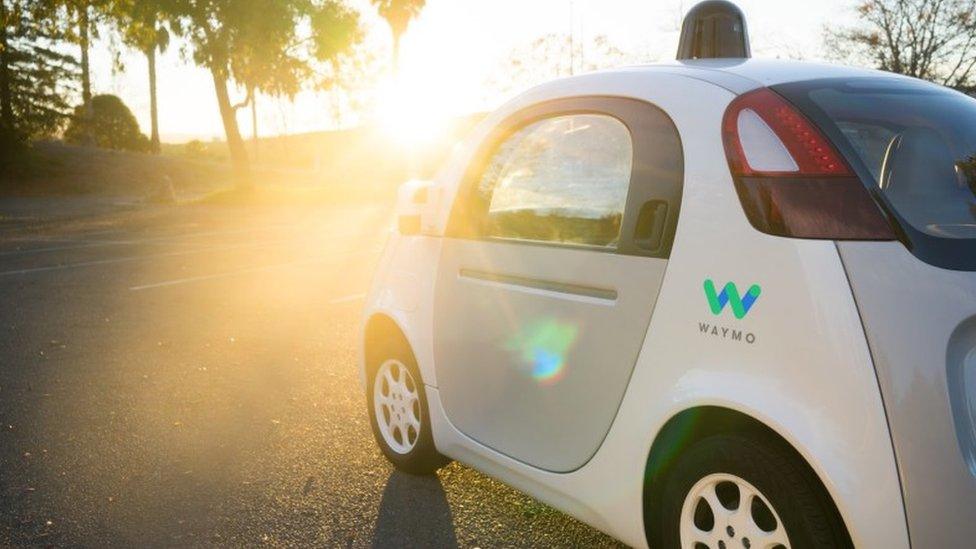
Alphabet has transferred Google's transport tech into a new independent company, Waymo - way forward in mobility
The former confirmed for the first time that it is developing a driverless car. The latter announced the creation of an independent company to exploit its already advanced transport and autonomous tech.
Between the bookends of January and December were major deals that underlined the new adapt-or-die approach sweeping across motor manufacturing.
General Motors bought a small three-year-old San Francisco company specialising in autonomous driving technology, Cruise Automation, for more than $1bn.
GM also invested $500m in on-demand taxi-hailing business Lyft, a rival to Uber, and reportedly tried to buy the whole thing for $6bn.
Why buy?
Fiat Chrysler Automobiles teamed up with Alphabet to collaborate on the development of self-driving minivans.
Ford, whose chief executive Mark Fields now refers to the company that made the first mass-produced vehicle as a "mobility services provider", pushed deeper into connected-car technology.
This included investment in a San Francisco cloud-based software and data analytics company, Pivotal, in which Microsoft also has a stake.
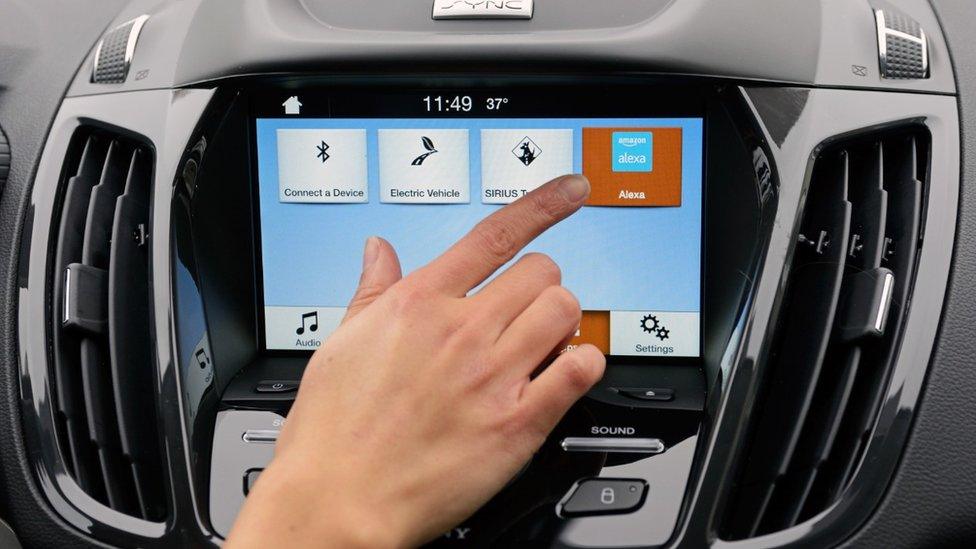
Ford SYNC is designed to allow users to control smart home appliances in their houses from their internet-connected cars
Ford, which has a growing R&D presence in Silicon Valley, is testing connected cars in the UK that can communicate with each other to help speed up journeys and reduce accidents.
Meanwhile, Jaguar Land Rover, which is testing similar connected technology in the UK, launched an independent start-up, InMotion, to develop smartphone apps and on-demand services.
In future, you may not need to buy a Jaguar or a Land Rover. You'll be able to access the car you want, when you want it, at the swipe of a smartphone.
There were more - many more - deals done during the year in the rush to secure competitive advantage or recover lost ground.
In China, Didi Chuxing Technology took over Uber's taxi-hailing operation, and also received a $1bn investment from Apple.
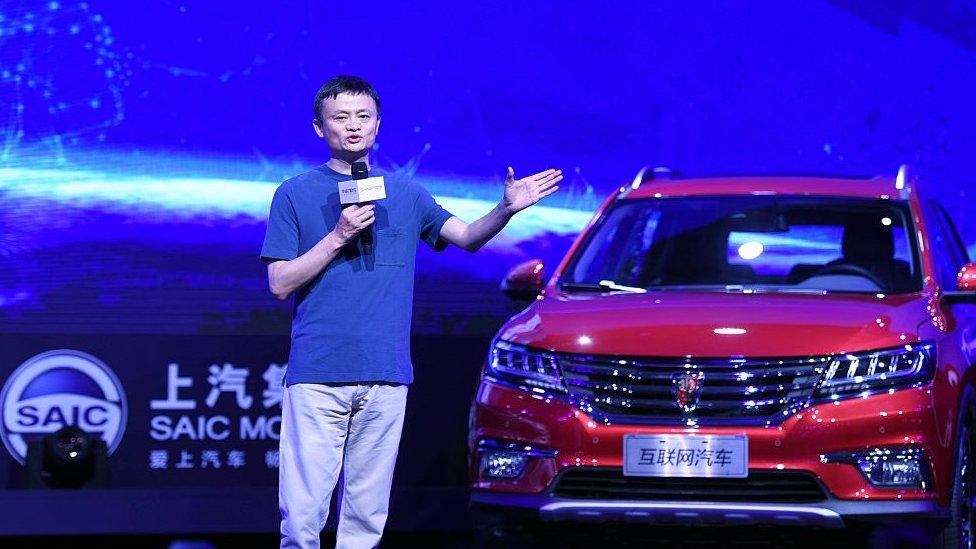
Alibaba's Jack Ma launched the Roewe RX5 at the Beijing Motor Show
And China's biggest carmaker, Shanghai Automotive, launched what it claimed is the first internet-connected car, the Roewe RX5, fitted with the YunOS operating system (used in mobile phones) owned by Alibaba, better known as the company behind a huge online marketplace.
Consolidation
There has been a sort of technological land grab. "The competitive challenge galvanised rival companies into action," says Frost & Sullivan's Martyn Briggs.
"The challenge now for car companies (and tech firms) is how they use their systems on a global scale," he says. "Partnerships are the key."
He predicts more of the same in 2017, but in particular expects greater investment in artificial intelligence systems and an expansion in major cities of car-sharing schemes.
But there will need to be a reckoning. "The consumer only needs so many taxi-hailing and car-sharing apps. There will eventually need to be some consolidation," says Briggs.
In 1908, the Ford Model T ushered in a mass market industry that at its core has remained the same for decades.
But with the death of the internal combustion engine in sight, and the end of mass private ownership on the horizon, it's looking increasingly like 2016 was the year when some major players laid the groundwork for a new era.